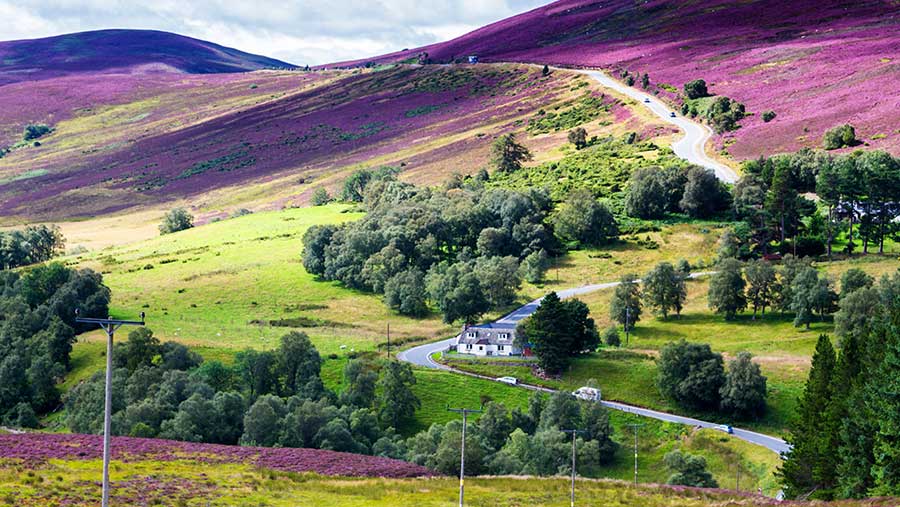Search for new Scottish national park sparks farmer concern
 The Cairngorms National Park near the Lecht Ski Centre © Milosz Maslanka/Adobe Stock
The Cairngorms National Park near the Lecht Ski Centre © Milosz Maslanka/Adobe Stock The search is on for Scotland’s next national park, as the Holyrood government moves to fulfil pledges made in the so-called Bute House Agreement – the power-sharing deal struck by the SNP and the Scottish Greens.
The commitment is to create at least one new national park in Scotland by 2026, and for the first time communities and organisations are being invited to submit their proposals or nominations.
To meet the criteria, groups must demonstrate that the land is of outstanding national importance due to natural or culture heritage and that it has a distinctive character; provide evidence of local support for the proposal; and show how national park status would meet the specific needs of the area.
See also: Scots farmers count the cost after major flooding
While the initiative has been praised for its environmental and community benefits, NFU Scotland’s environmental resources policy manager Sarah Cowie has expressed concern that the drive for a new national park has not considered the farming agenda.
She said: “The key concerns NFU Scotland has around the creation of any new national park is that it will not prioritise farming or food production, even though agriculture is likely to be the predominant land use in any new park.
“Disappointingly, in the statement the Scottish government released, there is no mention of agriculture, food production or agri-tourism, despite these being key pillars and drivers of the rural economy.
“With justification, our members are concerned that the wider impacts of national parks on their businesses aren’t being taken into account.”
Contributions to farming
NFU Scotland members in the two existing national parks – Loch Lomond and The Trossachs National Park and the Cairngorms National Park – feel that the parks have failed to make a positive contribution to farming, citing tourism as a main driver above agriculture and food production.
Ms Cowie continued: “For farming businesses to be profitable and sustainable, they have to invest and grow, and there are real concerns that national parks are just another layer of bureaucracy which won’t deliver for those living and working in the area.
“We have heard other concerns from members who have direct experience living within the national parks.
“They have evidence of overcrowding, congestion, irresponsible access, livestock attacks by dogs, and other antisocial behaviour.
“We recognise the benefits of public access, but it must be managed in a balanced way, with support available for land managers where there are issues.”
So far, expressions of interest have been submitted from areas including Galloway, Glen Affric, Lochaber and the Scottish Borders.
The application window will remain open until 29 February 2024.
